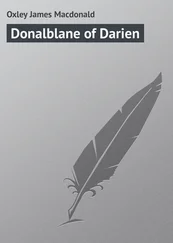James Oxley - With Rogers on the Frontier
Здесь есть возможность читать онлайн «James Oxley - With Rogers on the Frontier» — ознакомительный отрывок электронной книги совершенно бесплатно, а после прочтения отрывка купить полную версию. В некоторых случаях можно слушать аудио, скачать через торрент в формате fb2 и присутствует краткое содержание. Жанр: foreign_prose, на английском языке. Описание произведения, (предисловие) а так же отзывы посетителей доступны на портале библиотеки ЛибКат.
- Название:With Rogers on the Frontier
- Автор:
- Жанр:
- Год:неизвестен
- ISBN:нет данных
- Рейтинг книги:5 / 5. Голосов: 1
-
Избранное:Добавить в избранное
- Отзывы:
-
Ваша оценка:
- 100
- 1
- 2
- 3
- 4
- 5
With Rogers on the Frontier: краткое содержание, описание и аннотация
Предлагаем к чтению аннотацию, описание, краткое содержание или предисловие (зависит от того, что написал сам автор книги «With Rogers on the Frontier»). Если вы не нашли необходимую информацию о книге — напишите в комментариях, мы постараемся отыскать её.
With Rogers on the Frontier — читать онлайн ознакомительный отрывок
Ниже представлен текст книги, разбитый по страницам. Система сохранения места последней прочитанной страницы, позволяет с удобством читать онлайн бесплатно книгу «With Rogers on the Frontier», без необходимости каждый раз заново искать на чём Вы остановились. Поставьте закладку, и сможете в любой момент перейти на страницу, на которой закончили чтение.
Интервал:
Закладка:
J. Macdonald Oxley
With Rogers on the Frontier / A Story of 1756
CHAPTER I
ENGLISH AGAINST FRENCH
The great conflict between England and France for supremacy upon the North American continent was drawing near its final stage. It had been waged for more than a century with varying fortunes, and over a vast extent of territory. The sea-girt province of Acadia in the extreme east, and the rich valley of the Ohio in the far west had alike been the scene of bloody encounters, and now the combatants were coming to close grips in that picturesque and beautiful portion of New York State where the twin lakes Champlain and George lay embosomed amid forest-clad hills.
The possession of these lakes was divided between the two rivals, the French being masters of Lake Champlain, and the English of Lake George, and their crystal waters were again and again reddened with the life blood of the antagonists and their Indian allies as they fought fiercely for the prize of sole possession that the way between Canada and the colonies might be completely closed to whichever power was vanquished.
In the spring of the year 1755 the New England colonies combined to undertake the capture of Crown Point, the French stronghold on Lake Champlain, which for the past quarter of a century had been a veritable hornet's nest. To Governor Shirley of Massachusetts was due the credit of inspiring the undertaking, and his province was foremost in voting men and money toward its accomplishment, Connecticut, New Hampshire, Rhode Island, and finally New York followed suit, and the result was a little army of several thousand men, whose appearance would have filled a European commander with scorn.
For they were none of them soldiers, but simply farmers and farmers' sons who had gallantly volunteered for the campaign, leaving their scattered dingy homes in the midst of rough fields of corn and pumpkins to shoulder the guns they all knew so well how to use, and when the fighting was over, if so be that they escaped the bullet and tomahawk, to return to their ploughing and sowing as though they had merely been out on a hunting trip.
Only one corps boasted a uniform, blue faced with red. The others were content with their ordinary clothes, and the most of them brought their own guns. They had no bayonets, but carried hatchets in their belts instead, and at their sides were slung powder-horns on which they had carved quaint devices with the points of their pocket knives.
Their whole appearance was neither martial nor picturesque, and gave them no excuse for pride, but they were brave, brawny fellows, clear of head, quick of eye, swift of foot, and sure of hand, and incomparably better adapted for the irregular warfare of the time than the highly disciplined soldiery of either England or France. They knew the forests as the city-bred man knows the streets, and by day or night could traverse their fastnesses without fear of losing their way or falling into the hands of the enemy.
They were of all ages and sizes so to speak, from boys in their teens to gray-haired grandfathers, and from dwarfs to giants, but they all could give a good account of themselves in a fight either at long or close range.
The commander of this curious army was no less remarkable than his men, for he had never seen service, and knew nothing of war. An Irishman by birth, William Johnson had held an extensive domain on the banks of the Mohawk River for a score of years, and grown powerful and rich by trading with the Indians of the Five Nations who found him far more honest and reliable than his Dutch rivals in the business, and over whom he came to acquire so profound an influence that the Government made him Indian Superintendent, an appointment that was hailed with joy throughout the Iroquois Confederacy.
He had taken to himself a Mohawk squaw for wife, and lived in almost baronial style in a fortified house which was a stronghold against his foes and a centre of lavish hospitality to friends and visitors whether white or red.
Governor Shirley had chosen him for the responsible post of commander because by so doing he prevented any jealousy among the New England colonies, gratified the important province of New York, and secured the co-operation of the Five Nations, a threefold advantage that could be secured in no other way.
The gathering place was at Albany, and here in the month of July were assembled several thousand provincials ready for the fray. Hither also came a swarm of Johnson's Mohawks, warriors, squaws, and children. They made things very lively. They adorned the General's face with war-paint, and he joined them in the war dance, and then with his sword cut the first slice from the ox that had been roasted whole for their entertainment.
"I shall be glad," remarked a New England surgeon surveying the somewhat riotous goings-on with a touch of complacent contempt, "if they fight as eagerly as they ate their ox, and drank their wine."
Among the spectators of these rude festivities stood a youth whose otherwise pleasing countenance was so clouded that one seeing it could hardly fail to wonder what troubled him thus deeply.
Although still in his teens he had reached the stature of a man, and his well-knit figure gave evidence of no common share of strength and activity. He was dressed in a suit of tanned buckskin that became him particularly well, and with his double-barrelled smoothbore, carved powder-horn, keen-edged tomahawk, and long-bladed hunting knife was fully equipped to meet the foe.
The son of a pioneer settler upon the northern border of Massachusetts, Seth Allen had already drunk to its depths the cup of sorrow, for at one fell swoop the dusky allies of the French had rendered him a homeless orphan. With his own eyes he had beheld his parents tomahawked and scalped, the farmhouse burned, and the stock slaughtered while he had been carried off for torture in the Indian camp.
Escaping by a happy chance he made his way back to New England, and at once volunteered for active service against the French. Henceforward he had but one purpose in life – to serve his country in the field, and in view of what he had suffered it is easy to understand with what impatience he awaited the advance of the English against Crown Point, and how he chafed at the delay which seemed to him inexcusable.
Now above all things this expedition needed to act promptly, and yet preparations went on with exasperating slowness. The troops and supplies were contributed by five different legislatures, and they each wanted their own way about something. Indeed at one time there was a regular deadlock because they could not agree as to their respective quotas of artillery and stores.
"The expedition goes on very much as a snail runs," grumbled Surgeon Williams. "It seems we may possibly see Crown Point this time twelve months."
Seth Allen, burning with eagerness to forget in the excitement of action the horrors which haunted his memory, could not understand why there should be all this useless dawdling, and one day ventured to address a group of men whom he knew to be among the leaders.
"Can you tell me, good sirs," he said, doffing his cap respectfully, "how much longer we are to be here doing nothing?"
In the little party were Colonel Titcomb and Seth Pomeroy of Massachusetts, who had both fought so well at Louisbourg, the sturdy Israel Putnam of Connecticut, and brave John Stark of New Hampshire, and they all turned to look at the speaker while a suspicion of a smile curved the corners of their lips.
"Your question is not easy to answer, young man." It was Colonel Titcomb who spoke. "We would fain have some definite knowledge upon that matter ourselves. But may I inquire your name, and how you came here? You seem to have scarce sufficient years for such hard fighting as must fall to our lot if our purpose be effected."
Читать дальшеИнтервал:
Закладка:
Похожие книги на «With Rogers on the Frontier»
Представляем Вашему вниманию похожие книги на «With Rogers on the Frontier» списком для выбора. Мы отобрали схожую по названию и смыслу литературу в надежде предоставить читателям больше вариантов отыскать новые, интересные, ещё непрочитанные произведения.
Обсуждение, отзывы о книге «With Rogers on the Frontier» и просто собственные мнения читателей. Оставьте ваши комментарии, напишите, что Вы думаете о произведении, его смысле или главных героях. Укажите что конкретно понравилось, а что нет, и почему Вы так считаете.












